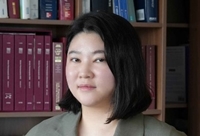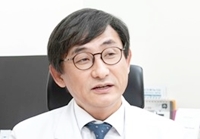- ‘HIV Is No Longer a Target of Discrimination'
- by Hwang, byoung woo | translator Alice Kang | Sep 11, 2025 06:09am
Amid the reality that the suicide risk among infected individuals in Korea is nearly twice as high as among non-infected individuals, academia, patient groups, and industry have joined forces to end the discrimination.
Medical professionals, HIV organizations, industry, and academia have united to end discrimination against people living with HIV, launching the ‘RED Period Consultative Body’ and holding a roundtable discussion on the 10th.

The RED Period Campaign derives its name from the red ribbon symbolizing AIDS, embodying the meaning of putting an end to prejudice.
Professor Beom-sik Chiin of the Infectious Disease Division at the National Medical Center, who presented at the event, emphasized the need for a fundamental shift in perception of the disease under the theme ‘Proposals for Ending Social Prejudice/Stigma in Line with Scientific Advances in the HIV Treatment Environment’.
According to Professor Chin, advances in antiretroviral therapy (ART) mean that with early diagnosis and treatment, people living with HIV now have an average life expectancy similar to that of non-infected individuals.
When medication suppresses viral activity to the point where HIV is undetectable in blood tests, the risk of transmission to others is also eliminated. This signifies that HIV is now a manageable and preventable chronic disease.
However, social perceptions still lag behind scientific progress, hindering the quality of life for people living with HIV.
An analysis of five-year mortality rates among individuals diagnosed with HIV in Korea in 2017 revealed that people living with HIV had a 1.84 times higher risk of death by suicide compared to those without HIV.
Professor Chin stated, “Letting aside situations like being refused surgery in medical settings, people living with HIV still experience frustration due to HIV. I hope we can put an end to this by educating and promoting that safe medical care is possible if access to post-exposure prophylaxis is strengthened and implemented and promote the availability of financial support measures.
He further noted, “Overcoming the deep-rooted stigma associated with the term ‘AIDS’ won't be easy. A starting point could be changing legal terminology, such as replacing ‘AIDS Prevention Act’ with alternative terms in public domains. This could minimize prejudice and stigma within institutional frameworks.”
The findings of the ‘2025 National Survey on HIV Awareness,’ conducted by the LGBTQ+ rights organization Sinnaneun Center and Korea Research, were also released at the meeting.
This survey, targeting 3,000 people nationwide, consisted of questions regarding ▲ awareness and understanding of HIV disease ▲ quantitative data on social misunderstandings and prejudice ▲ public perception of institutional support programs for HIV.
The survey results showed that while 8 out of 10 people had heard of HIV, only 25% demonstrated sufficient awareness to distinguish between HIV and AIDS.
Furthermore, only 13% of all respondents believed Korean society holds an open and inclusive attitude toward HIV, while 80% of respondents stated that improving HIV awareness in Korean society is necessary. Notably, 81% agreed on the need for active government policy support to reduce HIV infections.
Professor Chin stated, “The most notable aspect of this survey is that members of our society themselves keenly recognize the lack of an open and inclusive attitude toward HIV.” He added, “I am confident that the survey results will serve as a crucial driving force for promoting activities to end prejudice and stigma surrounding HIV, alongside solid support for government policy support.”
Following Professor Chin, Professor Jong-hyuk Lee of Kwangwoon University’s Department of Media & Communication introduced the campaign’s purpose and significance, emphasizing the need to build a healthier society by eradicating prejudice.
The Red Period Campaign is not a one-off event but a long-term awareness project aimed at eliminating stigma around HIV. The council plans to lead continuous online and offline activities to engage broad sectors of society in collaboration.
Finally, Dr. Tae-hyung Kim, Planning Director of the Korean Society for AIDS, said, “The Red Period campaign is a promise to end discrimination and stigma against people with HIV, and to build a society where everyone has equal access to treatment and prevention. HIV is no longer a target of stigma—it is a manageable chronic disease. We hope this message will reach both the public and the medical community, and that our efforts will contribute to Korea’s national goal of reducing new HIV infections by 50% by 2030.”
-

- 0
댓글 운영방식은
댓글은 실명게재와 익명게재 방식이 있으며, 실명은 이름과 아이디가 노출됩니다. 익명은 필명으로 등록 가능하며, 대댓글은 익명으로 등록 가능합니다.
댓글 노출방식은
댓글 명예자문위원(팜-코니언-필기모양 아이콘)으로 위촉된 데일리팜 회원의 댓글은 ‘게시판형 보기’와 ’펼쳐보기형’ 리스트에서 항상 최상단에 노출됩니다. 새로운 댓글을 올리는 일반회원은 ‘게시판형’과 ‘펼쳐보기형’ 모두 팜코니언 회원이 쓴 댓글의 하단에 실시간 노출됩니다.
댓글의 삭제 기준은
다음의 경우 사전 통보없이 삭제하고 아이디 이용정지 또는 영구 가입제한이 될 수도 있습니다.
-
저작권·인격권 등 타인의 권리를 침해하는 경우
상용 프로그램의 등록과 게재, 배포를 안내하는 게시물
타인 또는 제3자의 저작권 및 기타 권리를 침해한 내용을 담은 게시물
-
근거 없는 비방·명예를 훼손하는 게시물
특정 이용자 및 개인에 대한 인신 공격적인 내용의 글 및 직접적인 욕설이 사용된 경우
특정 지역 및 종교간의 감정대립을 조장하는 내용
사실 확인이 안된 소문을 유포 시키는 경우
욕설과 비어, 속어를 담은 내용
정당법 및 공직선거법, 관계 법령에 저촉되는 경우(선관위 요청 시 즉시 삭제)
특정 지역이나 단체를 비하하는 경우
특정인의 명예를 훼손하여 해당인이 삭제를 요청하는 경우
특정인의 개인정보(주민등록번호, 전화, 상세주소 등)를 무단으로 게시하는 경우
타인의 ID 혹은 닉네임을 도용하는 경우
-
게시판 특성상 제한되는 내용
서비스 주제와 맞지 않는 내용의 글을 게재한 경우
동일 내용의 연속 게재 및 여러 기사에 중복 게재한 경우
부분적으로 변경하여 반복 게재하는 경우도 포함
제목과 관련 없는 내용의 게시물, 제목과 본문이 무관한 경우
돈벌기 및 직·간접 상업적 목적의 내용이 포함된 게시물
게시물 읽기 유도 등을 위해 내용과 무관한 제목을 사용한 경우
-
수사기관 등의 공식적인 요청이 있는 경우
-
기타사항
각 서비스의 필요성에 따라 미리 공지한 경우
기타 법률에 저촉되는 정보 게재를 목적으로 할 경우
기타 원만한 운영을 위해 운영자가 필요하다고 판단되는 내용
-
사실 관계 확인 후 삭제
저작권자로부터 허락받지 않은 내용을 무단 게재, 복제, 배포하는 경우
타인의 초상권을 침해하거나 개인정보를 유출하는 경우
당사에 제공한 이용자의 정보가 허위인 경우 (타인의 ID, 비밀번호 도용 등)
※이상의 내용중 일부 사항에 적용될 경우 이용약관 및 관련 법률에 의해 제재를 받으실 수도 있으며, 민·형사상 처벌을 받을 수도 있습니다.
※위에 명시되지 않은 내용이더라도 불법적인 내용으로 판단되거나 데일리팜 서비스에 바람직하지 않다고 판단되는 경우는 선 조치 이후 본 관리 기준을 수정 공시하겠습니다.
※기타 문의 사항은 데일리팜 운영자에게 연락주십시오. 메일 주소는 dailypharm@dailypharm.com입니다.
- [Reporter's View] Approval-to-reimbursement takes only 6 mth
- Reporter's view | Lee, Hye-Kyung









